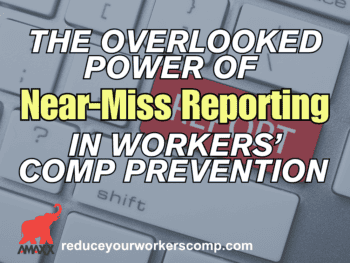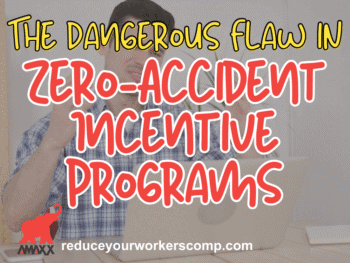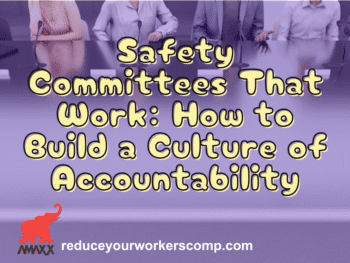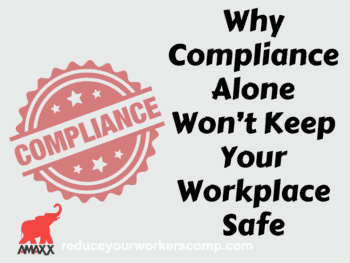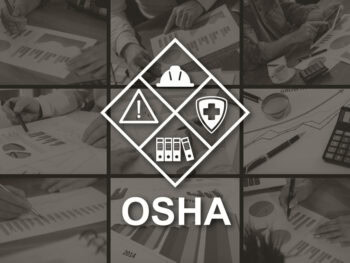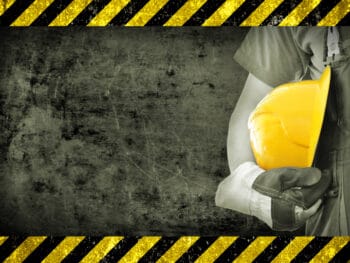Eight Ways to Improve Your Safety Program You know those magazines at grocery store checkouts? The covers are full of headlines like "Top 10 Ways to Get in Shape" and "Earn More Money in Five Easy Steps." There's a reason these magazines are so popular: They give tips to busy readers in an easy-to-read format. With that in mind, here are eight tips to help busy employers like you improve your safety program, increase your productivity and control your workers' compensation costs. 1. Focus on safety early. Safety training should be a key part of your new-employee orientation process. Do not let employees start work until they understand the hazards of the job and demonstrate that they can do each task safely. Safety training also is important for current employees who take on new tasks. 2. Practice behavior-based safety. Behavior-based safety programs are all-inclusive. Everyone, from the president to front-line employees, works proactively to identify and eliminate hazards. Employees are accountable for not only their own safety but also their co-workers' safety. 3. Account for language barriers. If you have employees who do not speak English, use more pictures and fewer words to get your message across. Teach your supervisors conversational Spanish, or ask bilingual employees to interpret safety messages. Make sure Spanish-speaking workers understand that it's OK to report unsafe conditions and ask supervisors to repeat instructions. 4. Remember young workers. Every summer, millions of teenagers pound the pavement looking for work. If some of them land on your doorstep, remember that they're often inexperienced and scared to ask questions. One of the best things you can do to help them stay safe on the job is simply be approachable. Just like with Spanish-speaking workers, make sure teenagers believe that nobody will reprimand them for pointing out hazards or admitting they don't understand safety procedures. 5. Fight substance abuse. Alcoholics and drug addicts don't always leave their problems at the door when they report to work. Sixty-five percent of workplace accidents involve substance abuse, and 10 percent to 20 percent of U.S. workers who die on the job test positive for alcohol or other drugs, according to the U.S. Department of Labor. You can clean up the problem by adopting a "zero tolerance" substance abuse policy. Your policy may combine pre-employment drug testing with "for cause" and random testing for current employees. Consult an attorney before you launch a substance abuse policy to ensure you comply with all laws. 6. Hire effectively. Good hiring practices can help weed out the type of employees who abuse substances and ignore safety practices. Good hiring practices include thorough background and reference checks, post-offer physical exams and drug screening. Make sure your hiring process complies with Americans with Disabilities Act. 7. Investigate accidents. Every gardener knows you have to pull weeds out by their roots. The same goes for workplace accidents. Your first priority when accidents happen is getting appropriate medical attention for the injured worker. Afterward, investigate the accident as soon as possible to uncover and correct the root causes. Treat near-accidents in the same way. workersxzcompxzkit) 8. Prepare for emergencies. Natural disasters are among the few hazards that employers in all industries face. Make sure your employees know exactly what to do during a fire, tornado or other emergency. If you have more than 10 employees, the federal Occupational Safety and Health Administration requires written emergency preparedness procedures. Author: Joey Lucia is a loss prevention supervisor at Austin-based Texas Mutual Insurance Company http://www.texasmutual.com the largest provider of workers' compensation insurance in Texas. (800) 859-5995. Email: information@texasmutual.com
WC Calculator: www.reduceyourworkerscomp.com/calculator.php TD Calculator: www.ReduceYourWorkersComp.com/transitional-duty-cost-calculator.php WC 101: www.ReduceYourWorkersComp.com/workers_comp.php Follow Us On Twitter: www.twitter.com/WorkersCompKit Do not use this information without independent verification. All state laws vary.
©2008 Amaxx Risk Solutions, Inc. All rights reserved under International Copyright Law. If you would like permission to reprint this material, contact Info@WorkersCompKit.com

